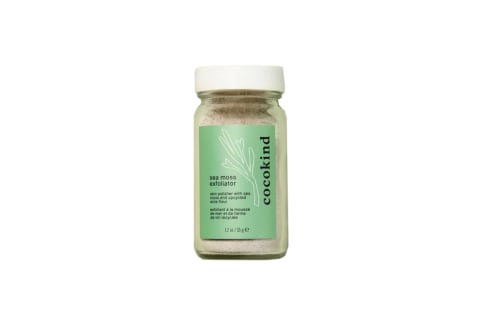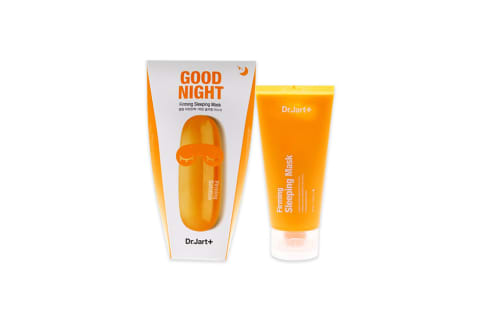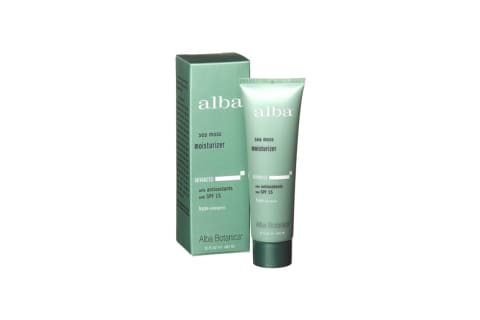Then again, not many skin care ingredients can thrive in the salty depths of the ocean. But experts believe there are nearly 73,000 species of algae, and we’ve only begun to scratch the surface in terms of their unique assets. Although, one popular type of seaweed is highly sought after in the beauty space: Check your labels for sea moss—it has some pretty swoon-worthy benefits for the skin. “Like other forms of seaweed, it is rich in bioactive antioxidants, antimicrobial, and anti-inflammatory compounds that have potential benefits for skin care,” notes board-certified dermatologist Cynthia Bailey, M.D., founder of Dr. Bailey Skin Care. Specifically, sea moss is rich in vitamins and minerals, including zinc, potassium, magnesium, sulfur, and phosphorus. “As someone from the Caribbean, I’m all too familiar with its use in drinks and smoothies (it’s very popular there), but it can also have benefits when applied to the skin,” board-certified dermatologist Ife J. Rodney, M.D., FAAD, founding director of Eternal Dermatology + Aesthetics, tells mbg. And sea moss, in particular, has special moisturizing properties: It contains high amounts of polysaccharides (called carrageenans), which act as a thickening agent that forms a protective yet non-occlusive film over the skin. “Most benefits of sea moss are attributed to its film-forming properties, making it ideal for moisturizers or serums,” says clean cosmetic chemist Krupa Koestline, founder of KKT Consultants. “Carrageenan is used to give products a thick and rich feel,” Bailey adds. “It binds water and can help hold water to the skin.” Side note: Some hair care products (namely gels) incorporate sea moss as well, as it thickens formulas and coats strands in moisture—like this Styling Custard from Pattern. This makes it helpful for managing dry skin and other skin concerns. Sea moss extract may even enhance skin photoprotection from UVB exposure, notes Bailey, as it helps combat free radicals on skin cells2. Plus, those carrageenans we mentioned? Studies show they even have antibacterial benefits3. “Because of this characteristic, the seaweed extract forms a protective seal over the epidermis,” she says. Sounds very scientific, but keratin makes up the majority of the epidermis (aka, the top layer of your skin), which is in charge of filtering out aggressors. As we mentioned up top, it also has antibacterial properties that can help guard skin health. “However, it can be used in a cleanser for a lightweight, moisturizing cleanse,” notes Koestline. Look for sea moss, Irish moss, or Chondrus crispus extract on your skin care labels. Rodney also recommends snagging a jar of straight-up sea moss gel as a DIY mask—like this wildcrafted option from Herbal Vineyards. “You can use the gel as a mask one to two times a week, increasing the frequency as needed,” she says. Or if you’d like to stick to market formulas infused with sea moss extract, browse our picks below. “There are several options on the market that are man-made, lack the potency of natural moss, or contain heavy metals,” says Rodney. “Read the ingredients carefully and do some background research before choosing the right product.” Make sure the brand always sources wild, organic sea moss (rather than farmed or pool-grown) and tests it for heavy metals. “It’s important to only use sea-moss-containing products from companies that you trust source ingredients carefully,” adds Bailey. According to an FDA paper on the safety of sea moss, there was no reported evidence that sea moss affects the skin negatively. “At the time of the review, over 94 products were found to contain sea moss, typically at a maximum concentration of 2% or less,” Bailey says. Of course, you should still always patch test before slathering on a new ingredient or product, but topical sea moss seems quite gentle, even for sensitive skin. “Similar to many different sea veggies, like nori, kelp, and spirulina, sea moss is deemed as a superfood of the sea for its high nutrient content,” registered dietitian Mascha Davis, MPH, RDN, says. (Like iron, folate, magnesium, phosphorus, and zinc, to name a select few.) Of course, sourcing still matters, but you can find the red algae in a variety of cuisines and supplements. Just be mindful of sourcing, and always do your brand research, but when it comes to skin benefits, Bailey considers sea moss one “sweetheart ingredient.”






